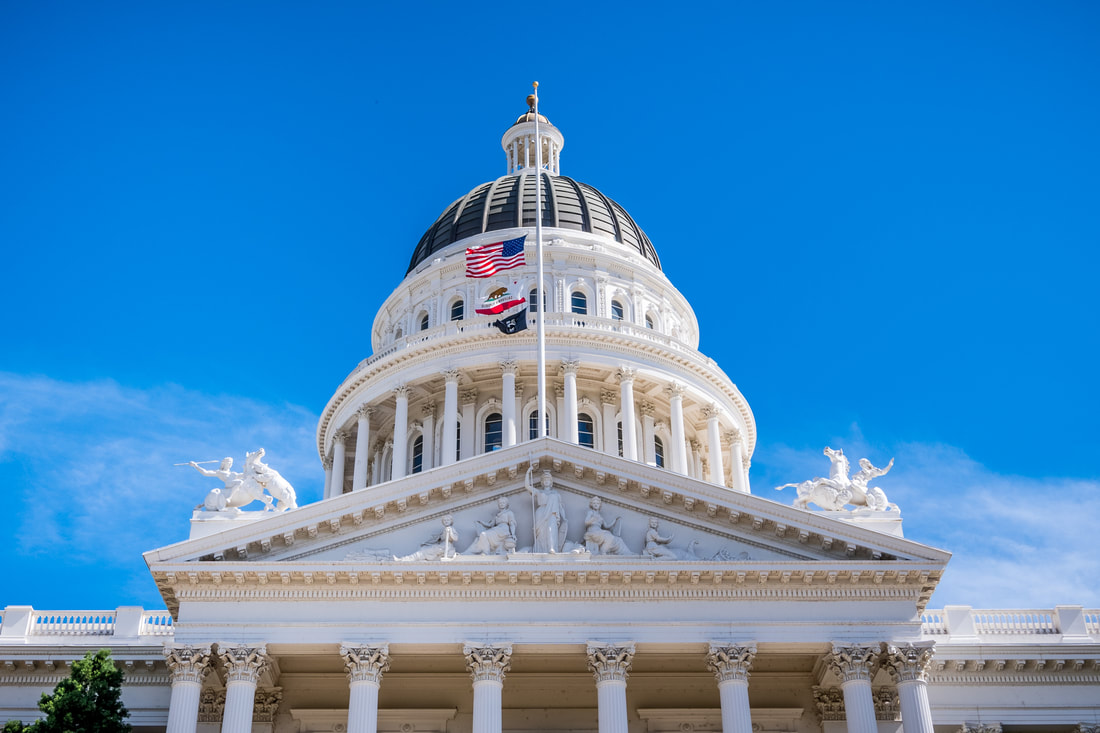Significant employment bills make their way to Governor Newsom’s desk ahead of crucial deadline9/15/2023  Thursday, September 14th marked the deadline for California’s two legislative bodies – the state assembly and state senate – to pass bills. Bills passed by both bodies will now head to Governor Gavin Newsom’s desk, where the governor will have one month to determine which bills to sign into law. The employment bills Mr. Newsom will consider for approval run the gamut, from legislation on caregiver discrimination to bills increasing paid sick days. Below is a recap of the bills at the governor’s desk that figure to have the greatest impact on California’s workers if approved. Family Caregiver Discrimination – AB 524 AB 524 would amend the state’s Fair Employment and Housing Act (FEHA) by adding “family caregiver status” to the list of protected characteristics that employers cannot take into account when making employment decisions such as hiring and firing. Consideration of this bill comes at a critical time. Caregivers are the fastest growing workplace identity group and may make up us much as 73% of the American workforce. More than 63 million Americans care for at least one child, and 40.4 million Americans provide unpaid care to someone aged 65 years or older. The pandemic’s aftermath and America’s rapidly aging population have only exacerbated the challenges faced by caregivers. Arbitration Appeal Delays – SB 365 When trial courts find that a forced arbitration agreement is invalid, employers frequently use delay tactics, such as filing an appeal, that can effectively pause a case for years at a time. If signed into law, SB 365 would undercut such tactics and allow employment lawsuits to move forward when defendants file appeals involving a petition to compel arbitration. WARN Act Expansion – AB 1356 California’s Worker Adjustment and Retraining Notification (WARN) Act protects employees by requiring employers to give a 60-day notice to affected employees before a plant closing or mass layoff. AB 1356 would expand the WARN Act’s protections by requiring employers to provide employees with 75 days of advance notice. It would also prohibit employers from requiring employees to waive their rights by signing onerous severance agreements with releases and non-disparagement provisions in exchange for the payment of back wages. The bill was inspired by the massive layoffs at tech companies like Google and Meta, particularly Elon Musk’s alleged mishandling of layoffs at the company formerly known as Twitter. Additional Paid Sick Days- SB 616 SB 616 would require California’s employers to provide workers with five days of paid sick leave instead of the current allotment of three. Increasing the number of paid sick will reduce the frequency at which workers, particularly low-income workers, are forced to make difficult decisions between foregoing pay and going to work sick. If signed into law, the bill is also expected to strengthen public health protections. According to the Washington Center for Equitable Growth, “paid sick leave guarantees are seen by many public health experts as one of the strongest tools in stopping the spread of infectious diseases.” For a list of other employment bills heading to Mr. Newsom’s desk, click here. The governor will have until October 14th to sign bills from this year’s legislative session into law.
0 Comments
 Lauren Teukolsky was quoted in a Bloomberg Law article last week unpacking a wave of ongoing litigation prompted by Elon Musk’s mass layoffs at Twitter. The layoffs began in early November, following Elon Musk’s $44 billion acquisition of the social media giant. After taking over, Musk proceeded to fire half of Twitter’s workforce, asked some essential employees to return, rolled back its expansive work-from-home policy, and called on the remaining employees to sign a pledge to remain at an “extremely hardcore” Twitter or quit. Musk’s actions have prompted many of Twitter’s recently laid-off employees to pursue class action lawsuits against the company alleging violations of the Worker Readjustment and Retraining Notification (WARN) Act, a federal law, and its California equivalent, among other allegations. This, in turn, has led Twitter to require some employees to sign a release of legal claims against the company at the risk of not receiving severance pay, according to an amended complaint recently filed by ex-Twitter workers. Ex-Twitter workers have responded to Twitter’s move by requesting a protective order blocking the company from soliciting such releases and nullifying any it has already obtained. The article states: “The workers’ Nov. 9 request is based on a well-developed body of federal law analogous to the state law standards developed after a California appellate court’s 2009 ruling in Chindarah v. Pick Up Stix, Inc., said Lauren Teukolsky, a plaintiffs’ attorney with Teukolsky Law PC. ‘Many cases since Pick Up Stix have found releases to be invalid where the employer engaged in coercive or misleading tactics,’ Teukolsky said.” To read the article in its entirety, click here. If you have been affected by recent developments at Twitter, click here to get in touch with Teukolsky Law. |
AuthorLauren Teukolsky is the founder and owner of Teukolsky Law, A Professional Corporation. Archives
June 2024
Categories
All
|
Teukolsky Law, A Professional Corporation, represents clients throughout California. Ms. Teukolsky is admitted to practice in the State of California, as well as the United States Supreme Court, Ninth Circuit Court of Appeals, Northern District of California and Central District of California. Disclaimer.
Copyright © 2017
Copyright © 2017

 RSS Feed
RSS Feed